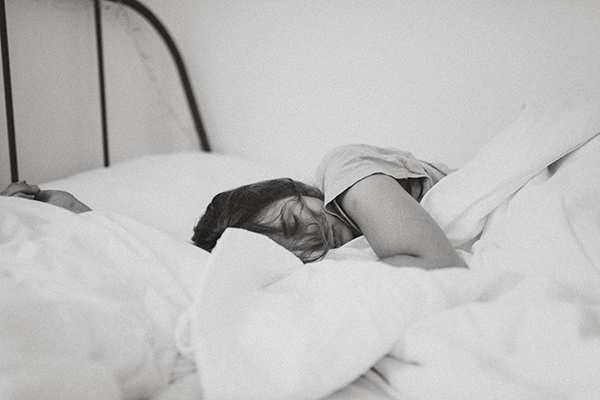Individual Counseling Insights brought to you by California Psychotherapeutic Resources, Inc.
Ah, what can be nicer than waking up completely refreshed after a good night’s sleep? Unfortunately, in our fast-paced world, sleeping soundly is often a luxury we rarely indulge. We’re bombarded with things — often our own habits — that infringe on our ability to sleep well.

These include:
- Consuming caffeine after noontime
- Indulging in a heavy meal or dessert shortly before bedtime (less than three hours)
- Crashing in the afternoon for a nap because you just can’t keep your eyes open
- Reaching for that glass of wine or cocktail late in the evening
- Exercising too close to bedtime
- Working on a computer or smartphone right up to bedtime
- Having an erratic schedule where you go to bed at wildly alternating hours
You might be tempted to just write off poor sleep as a cost of living in modern society, but your body will still suffer the effects of poor sleep patterns whether you can power through your day or not.
Writing for Healthline.com, Stephanie Watson and Kristeen Cherney comment on the effects of sleep deprivation on your body: “It drains your mental abilities and puts your physical health at real risk. Science has linked poor slumber with a number of health problems, from weight gain to a weakened immune system.”
Mark Sheridan makes a similar point in an article for Saatva, but in a more dramatic fashion: “Several days without sleep can kill you, but several nights of less than six hours’ sleep can dramatically increase your risk of premature death over time… Even one night of poor sleep can have profound effects throughout your body, contributing to a whole host of medical problems. Some of the effects can be reversed; others can’t.”
What are some of these effects? Watson, Cherney and Sheridan all point to similar areas of concern.
Brain function: Impairment, ranging from lapses in memory to trouble with thinking and concentration and reduced creativity.
Mood changes: Lack of sleep affects your moods, leading to quick-tempered responses to ordinary problems and even anxiety.
Central nervous system: “Sleep helps to regulate neurotransmitters such as norepinephrine, serotonin, and dopamine,” says Sheridan. “When these chemicals get out of whack, it can lead to mood disorders such as depression and bipolar disorder.”
Immune system: “While you sleep, your immune system produces protective, infection-fighting substances like antibodies and cytokines,” says Watson and Cherney. “It uses these substances to combat foreign invaders such as bacteria and viruses… Sleep deprivation prevents your immune system from building up its forces. If you don’t get enough sleep, your body may not be able to fend off invaders, and it may also take you longer to recover from illness.”
Cardiovascular system: Research has shown that lack of sleep can lead to an increase in heart rate and blood pressure.
Hormonal imbalances: When hormones are messed with, bad things can happen. Sleep deprivation can interfere with the proper production of hormones, which regulate everything from appetite to sex drive. It can also affect the release of insulin, which can lead to an increased risk of type 2 diabetes. The answer, of course, is to develop proper habits that help give you the ability to sleep soundly every night. Here are more tips on those healthy habits from Watson and Cherney in Healthline and Sheridan in Saatva.